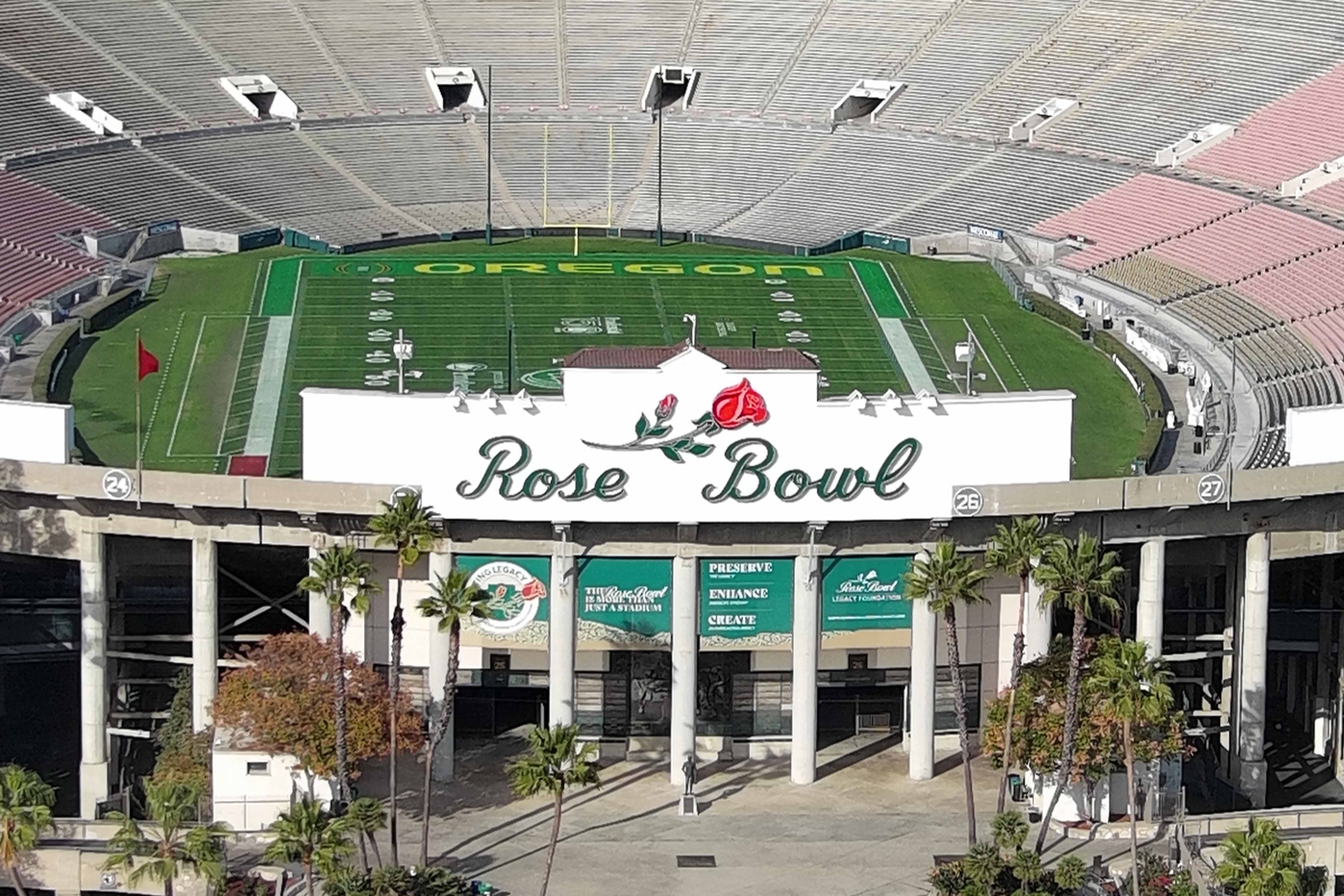What to Know
- The city of Pasadena and the Rose Bowl Operating Co. filed a lawsuit last month that accuses UCLA of trying to move football games from the historic venue to SoFi Stadium.
- This week, Pasadena and the Rose Bowl are requesting a restraining order to prevent a move.
- A hearing on the restraining order could come as early as Wednesday.
- The current lease agreement runs through June 2044. The lawsuit asks for a court order requiring UCLA to honor the lease.
- UCLA moved its home games to the Pasadena stadium in 1982 after sharing Los Angeles Memorial Coliseum with cross-town rivals USC.
- In December, plans were announced to update the storied venue, which opened in October 1922.
The city of Pasadena and the Rose Bowl Operating Co. are seeking a restraining order to prevent UCLA from moving its home football games out of the historic venue.
The latest legal move comes after a lawsuit was filed in October to enforce a lease agreement that would force UCLA to continue to play its home games at the stadium through 2044. The lawsuit filed in Los Angeles County Superior Court accuses UCLA of attempting to relocate its home football games to SoFi Stadium in Inglewood from the Rose Bowl, where the Bruins have played for four decades.
The NFL stadium, homes to the Rams and Chargers, is about 10 miles south of the university’s Westwood campus.
The city called the lawsuit, which is still pending, an “unfortunate but necessary step.”
A hearing on the request for a restraining order, which would prevent the Bruins from playing and home football games at any other venue in LA and Orange counties, could happen as early as Wednesday morning, according to court documents. The order als would bar the university from attempting to terminate its Rose Bowl lease while the lawsuit is pending.
The current lease agreement runs through June 2044. The lawsuit asks for a court order requiring UCLA to honor the lease.
“That lease agreement is unambiguous, explicitly stating there is no option for UCLA to terminate the lease prior to its expiration in 2044,” the city said in a statement after the lawsuit was filed. “Notwithstanding the clear language of the lease, a representative from UCLA has notified the City and the Rose Bowl of UCLA’s intent to take steps that will breach the agreement—an agreement that was signed back in 2010 and amended in 2014. The City expects UCLA will honor the terms of the agreement, and the City Council will do everything in its power to protect and defend the City’s contractual rights on behalf of the public interest, the City’s residents, and all in our region.
“The City of Pasadena and the Rose Bowl Stadium, steadfast partners to UCLA for more than four decades, are extremely disappointed with UCLA’s attempt to terminate the lease.”
UCLA provided a statement to NBCLA in October.
“While we continue to evaluate the long-term arrangement for UCLA Football home games, no decision has been made,” said Mary Osako, UCLA Vice Chancellor for Strategic Communications.
SoFi Stadium reps declined to comment.
In a letter dated March 27 attached to the court complain, UCLA outside counsel David L. Schrader wrote that UCLA has not violated its agreement in response to a letter from an attorney representing Pasadena.
“While your letter contends that ‘discussions about moving UCLA home games away from the Rose Bowl Stadium amount to a breach of UCLA’s contractual obligations,’ the Agreement says no such thing, much less would any such preliminary discussions constitute a material breach for which RBOC would be entitled to a legal or equitable remedy,” Schrader wrote.
Schrader added that there has been “no actual or threatened failure by UCLA to perform its covenants.”
The lawsuit claims that on Oct. 18, UCLA’s counsel informed attorneys for the city and RBOC that the Bruins instead to move from the Rose Bowl.
UCLA moved its home games to the Pasadena stadium, about 25 miles from its Westwood campus, in 1982 after sharing Los Angeles Memorial Coliseum with cross-town rivals USC. In December, plans were announced to update the storied venue, which opened in October 1922. Some of the projects were expected to be completed in 2026 with another round planned following the 2028 Los Angeles Olympics.
“The Rose Bowl has acted with transparency and integrity, not only fulfilling but exceeding its obligations under the lease agreement, investing significant time, effort, and financial resources into the partnership with UCLA, including ongoing major renovation work,” the city’s statement continued. “The potential economic and reputational damage of UCLA’s attempt to break its lease is significant to the Rose Bowl Stadium, Pasadena residents, and the local and regional economy.
“The Rose Bowl—America’s Stadium—remains one of the most important venues in all of sport. It is consistently ranked as one of the best college football stadiums in the country and one of the busiest and most popular sports and entertainment destinations in the world.”
Want more insights? Join Grow With Caliber - our career elevating newsletter and get our take on the future of work delivered weekly.

